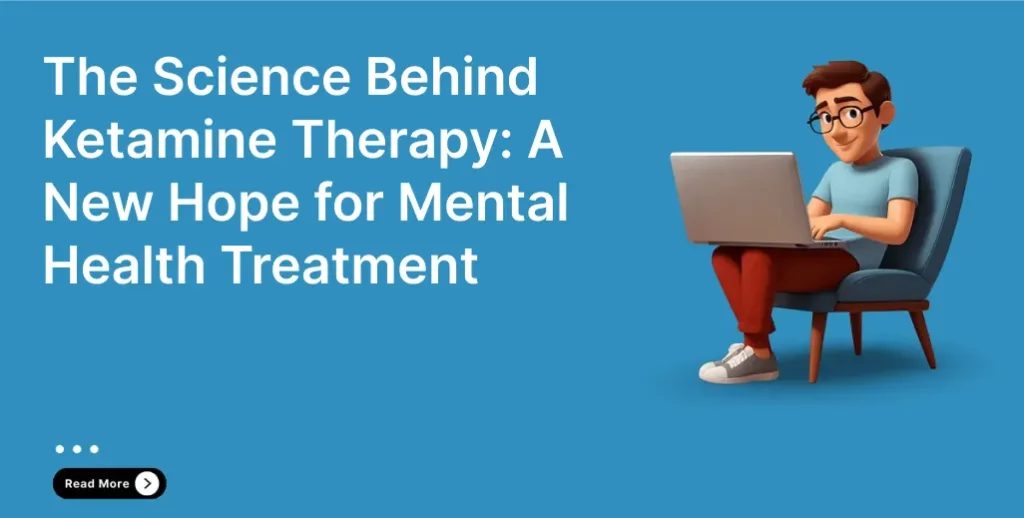

For decades, mental health treatment has revolved around traditional antidepressants and talk therapy. While these approaches have helped many, countless individuals still struggle with depression, anxiety, or trauma-related disorders that don’t respond to standard care.
In recent years, however, a revolutionary treatment has emerged, one grounded in neuroscience and rapid results: ketamine therapy. Backed by growing research and clinical evidence, it offers a lifeline for people facing treatment-resistant depression and other mood disorders.
Antidepressants like SSRIs and SNRIs have been the standard for decades, but they’re far from perfect. These medications target neurotransmitters such as serotonin and norepinephrine, yet up to 30% of patients with depression are considered “treatment-resistant.”
For many, side effects, long waiting periods, and inconsistent results create frustration and hopelessness. Others experience emotional numbness rather than genuine relief, leaving underlying issues unresolved.
This is where alternative treatments like ketamine come in. By targeting an entirely different pathway in the brain, ketamine offers a new way forward for individuals who have been left behind by traditional medication. It doesn’t just alter mood, it helps the brain heal, adapt, and reconnect on a biological level.
Unlike conventional antidepressants that take weeks to work, ketamine acts within hours. It targets the brain’s glutamate system, specifically NMDA receptors, to encourage neuroplasticity, the brain’s ability to form new neural connections.
This process helps “reset” pathways linked to mood regulation, offering fast and often dramatic relief from symptoms of depression and anxiety. Patients who have struggled for years with medication-resistant conditions frequently report feeling like their minds have been “unlocked” or “rebooted.”
Exploring the science behind this mechanism can help individuals learn more about why ketamine is changing how clinicians approach mood disorders today.
Ketamine’s success in addressing depression has opened new avenues for its use across various mental health conditions. Beyond major depressive disorder, it’s showing promise for anxiety, bipolar depression, and PTSD.
Because it works on different neurotransmitter systems than SSRIs or SNRIs, ketamine can benefit patients who have experienced little to no improvement with conventional medication. Many report relief after just one or two sessions, a breakthrough for those who’ve spent years cycling through prescriptions without success.
Its rapid effect also makes it a valuable tool in preventing suicidal thoughts, offering stabilization during critical moments when patients need immediate relief.
Though ketamine therapy can be transformative, it’s not a one-size-fits-all solution. Medical supervision is essential to ensure safety, dosage accuracy, and psychological support during and after treatment.
Therapy sessions are typically conducted in a clinical setting, where professionals monitor vital signs and guide patients through the dissociative experience that ketamine induces. Post-treatment integration, talking through insights and emotions, is equally important in reinforcing long-term healing.
Working with clinics experienced in advanced ketamine treatments, like Neuroplasticity MD, ensures that patients receive comprehensive care rooted in both neuroscience and compassion.
For many people, the idea of using a compound once associated with anesthesia or recreational misuse can feel intimidating. However, medical-grade ketamine therapy is administered in precise doses, under professional care, and supported by extensive research.
The growing acceptance of ketamine in the medical community is reshaping how society views alternative treatments. As more individuals experience its benefits, public perception continues to evolve, from skepticism to hope.
Understanding the science, safety protocols, and therapeutic value behind ketamine helps dispel outdated myths and promotes informed decision-making for those seeking new paths to recovery.
The future of mental health care lies in approaches that embrace the brain’s capacity to heal itself. Treatments like ketamine therapy highlight the potential of neuroplasticity, helping patients move beyond symptom management toward genuine transformation.
For those who have lost faith in traditional treatments, ketamine represents a new beginning grounded in both science and empathy.
To explore clinical insights, treatment guidance, and emerging research, visit https://www.neuroplasticitymd.com/ for professional resources and information about innovative mental health solutions.







We use cookies to improve your experience on our site. By using our site, you consent to cookies.
Manage your cookie preferences below:
Essential cookies enable basic functions and are necessary for the proper function of the website.
Google reCAPTCHA helps protect websites from spam and abuse by verifying user interactions through challenges.
Google Tag Manager simplifies the management of marketing tags on your website without code changes.
Statistics cookies collect information anonymously. This information helps us understand how visitors use our website.
SourceBuster is used by WooCommerce for order attribution based on user source.
Marketing cookies are used to follow visitors to websites. The intention is to show ads that are relevant and engaging to the individual user.
Facebook Pixel is a web analytics service that tracks and reports website traffic.
Service URL: www.facebook.com (opens in a new window)
You can find more information in our Cookie Policy and Privacy Notice.